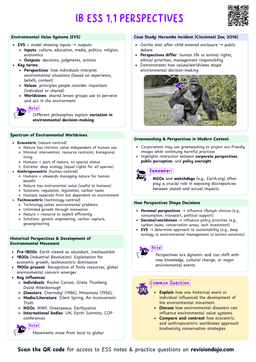Resource Security: A Comparative Analysis of Food & Water in Two Societies
- Resource security ensures that a society has a stable, sufficient, and long-term supply of essential resources like food and water.
- However, different countries face varying challenges based on their geography, economy, and governance.
Resource security is influenced by climate, technology, governance, and international cooperation.
Food Security in the United States
High Food Production & Availability
- The U.S. is one of the world’s largest food producers (grains, meat, dairy).
- Industrialized mechanized farming and GM crops increase yields.
- Strong food distribution networks ensure consistent supply.
Challenges to Food Security
- Food waste (~30-40% of all food produced is wasted).
- Obesity & malnutrition: High availability doesn’t mean a balanced diet.
- Climate change: Extreme weather events (droughts, wildfires) impact crops.
- Income inequality: Millions rely on food aid due to economic disparity.
Efforts to Improve Food Security
- Investment in sustainable agriculture and regenerative farming.
- Food banks & social programs combat food insecurity.
Water Security in Ethiopia
Limited Access to Clean Water
- 60% of the population lacks access to safe drinking water.
- Heavy reliance on rain-fed agriculture, making food and water supplies vulnerable to droughts.
- Infrastructure challenges: Poor sanitation and limited water treatment facilities.
Challenges to Water Security
- Climate variability: Prolonged droughts lead to crop failures and famine.
- Population growth: Rising demand increases stress on water sources.
- Geopolitical tensions: Disputes over the Nile River (e.g., Grand Ethiopian Renaissance Dam).
Efforts to Improve Water Security
- Investment in irrigation systems & rainwater harvesting.
- Expansion of water purification & desalination projects.
- International aid & NGO support for clean water access programs.
Sustainable policies & investments are crucial to ensure long-term resource security.
- How do cultural and economic differences shape a society's approach to resource security?
- To what extent should high-income countries support low-income countries in achieving resource security?
Factors Affecting the Use of a Natural Resource: Lithium in Bolivia
- Lithium is a highly sought-after natural resource due to its use in batteries for electric vehicles (EVs), renewable energy storage, and electronics.
- Bolivia holds the largest lithium reserves in the world (Salar de Uyuni), yet its exploitation and use are shaped by several factors.
Economic Factors
- Potential for Economic Growth: Lithium mining could significantly boost Bolivia’s economy, reducing reliance on other exports.
- Government Monopoly: Bolivia has nationalized lithium production, limiting foreign investment.
- Global Demand & Prices: Prices fluctuate due to competition from Chile & Argentina, affecting Bolivia’s production incentives.
Environmental Factors
- Water Scarcity: Lithium extraction is water-intensive, threatening local ecosystems and agriculture.
- Soil & Air Pollution: Mining releases toxic chemicals, impacting biodiversity.
- Climate Change: The shift to renewable energy & EVs increases lithium demand but contradicts concerns over its environmental damage.
Political & Legal Factors
- State Control vs. Foreign Investment: Bolivia’s policies limit private investment, reducing extraction efficiency.
- International Agreements: Pressure from global climate policies (e.g., Paris Agreement) influences Bolivia’s decision to export lithium for green technologies.
- Regional Tensions: Lithium-rich countries (Chile, Argentina, Bolivia) compete in the "Lithium Triangle", affecting cooperation and trade policies.
Sociocultural & Indigenous Perspectives
- Local Protests: Indigenous communities oppose lithium mining due to its impact on water resources and land rights.
- Employment Opportunities: Lithium extraction can create jobs but may not benefit local communities due to foreign technology dependence.
Geographical & Technological Factors
- High Altitude & Harsh Climate: Salar de Uyuni's extreme conditions make extraction costly and difficult.
- Lack of Infrastructure: Limited roads, electricity, and processing plants slow lithium development.
- Technological Challenges: Newer direct lithium extraction (DLE) techniques could reduce environmental harm but require investment.
- Factors influencing the use of natural resources have been explored in the context of Lithium in Bolivia.
- These factors influence the use of all natural resources.


